Days of Glory (1944)
“My congratulations for the death of two fascists. Now you will set the table, please.”
|
Synopsis: |
|
Genres, Themes, Actors, and Directors:
Review: … and also Czech-born, soon-to-be-writer-director Hugo Haas in his first Hollywood appearance: However, it’s otherwise simply pure propaganda, with plenty of pulpy romance, honorable sacrifice, and hoary dialogue:
Only film fanatics with an interest in the super-brief era of Soviet-allied Hollywood cinema need to bother checking this one out. Redeeming Qualities and Moments: Must See? Links: |
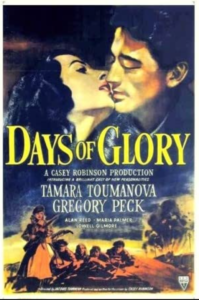
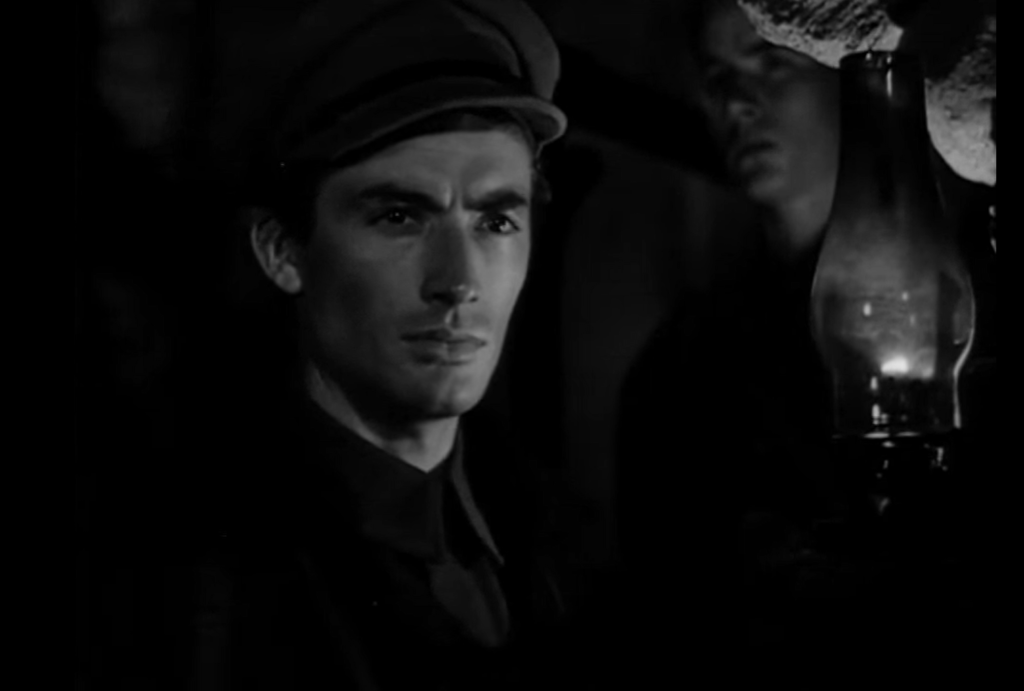
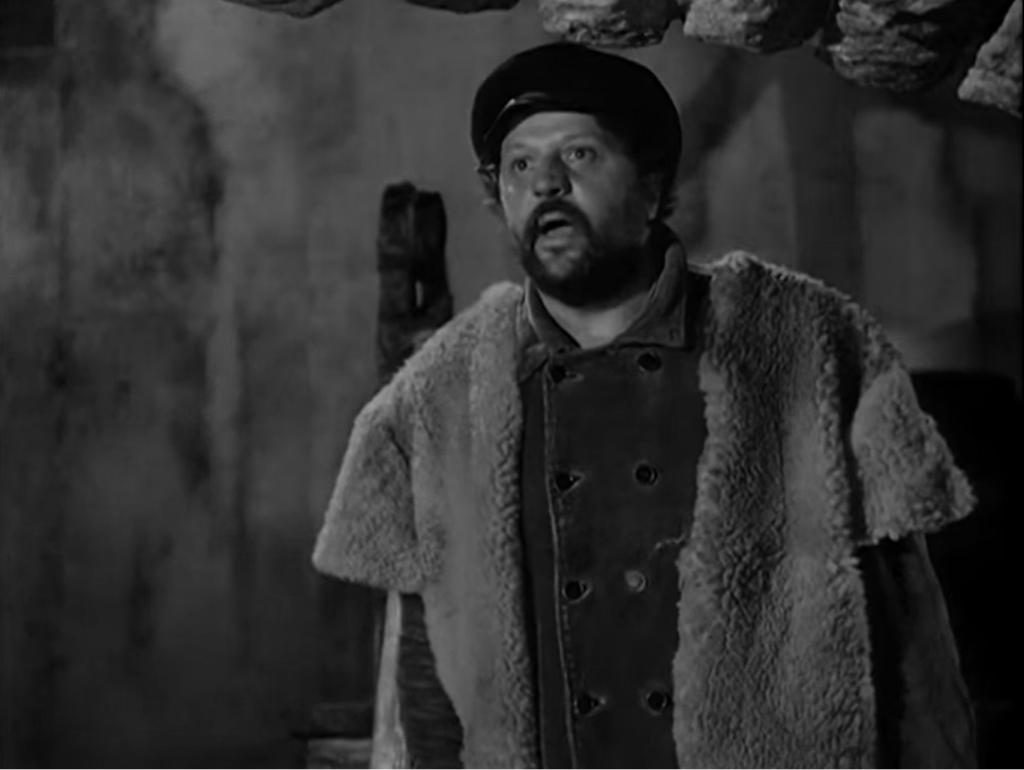
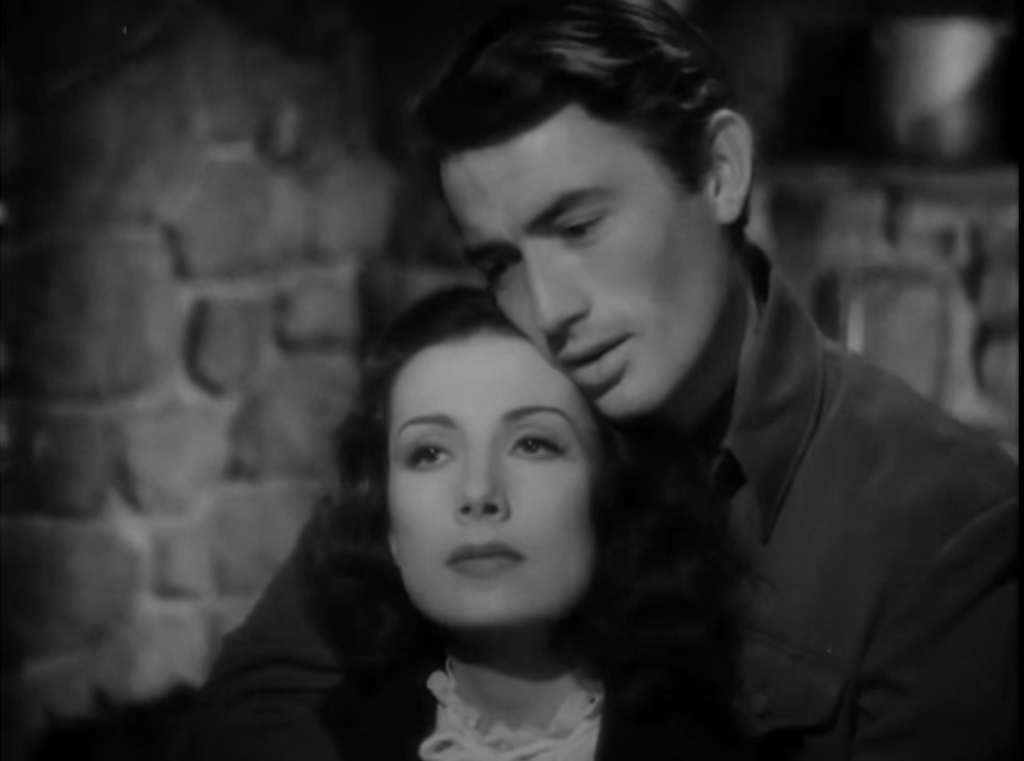
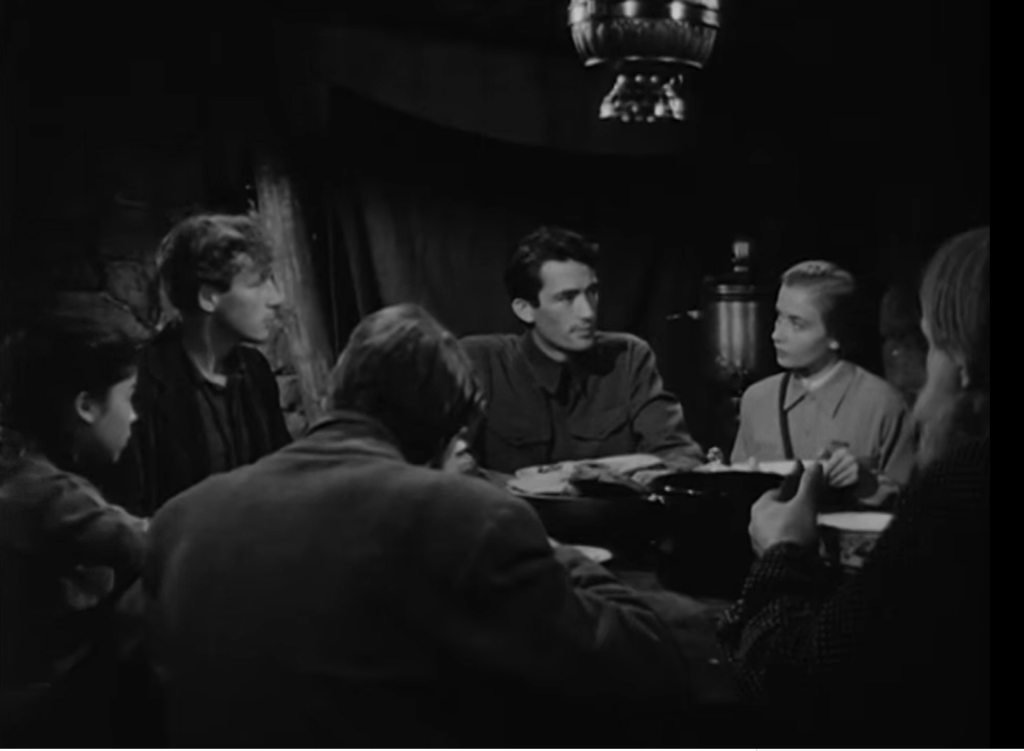
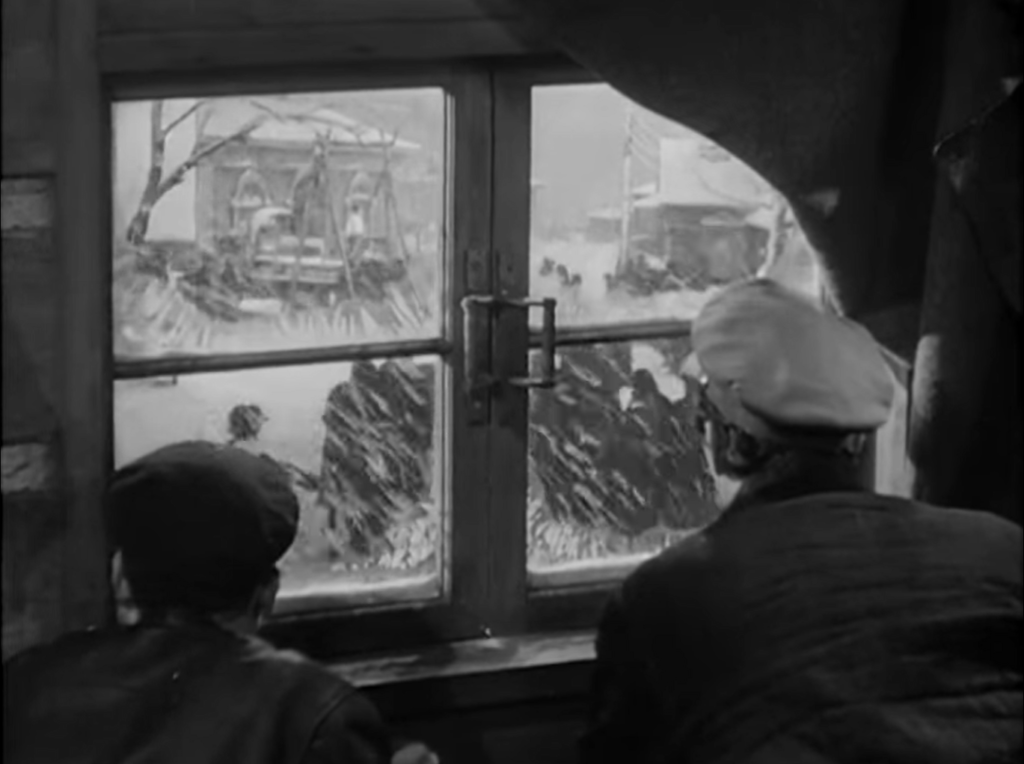
One thought on “Days of Glory (1944)”
First viewing. Not must-see.
Though well-intentioned, this flick is overly earnest and full of dialogue that feels more Hollywood than WWII.
Seems to me that screenwriter Casey Robinson tended to be more disciplined than this – and the romance between Peck and Toumanova (her performance striving strangely for something ethereal but managing something in need of energy) is awkward and drippy.
Director Tourneur did what he could but the film’s worth rests with its anti-Nazi sentiment.